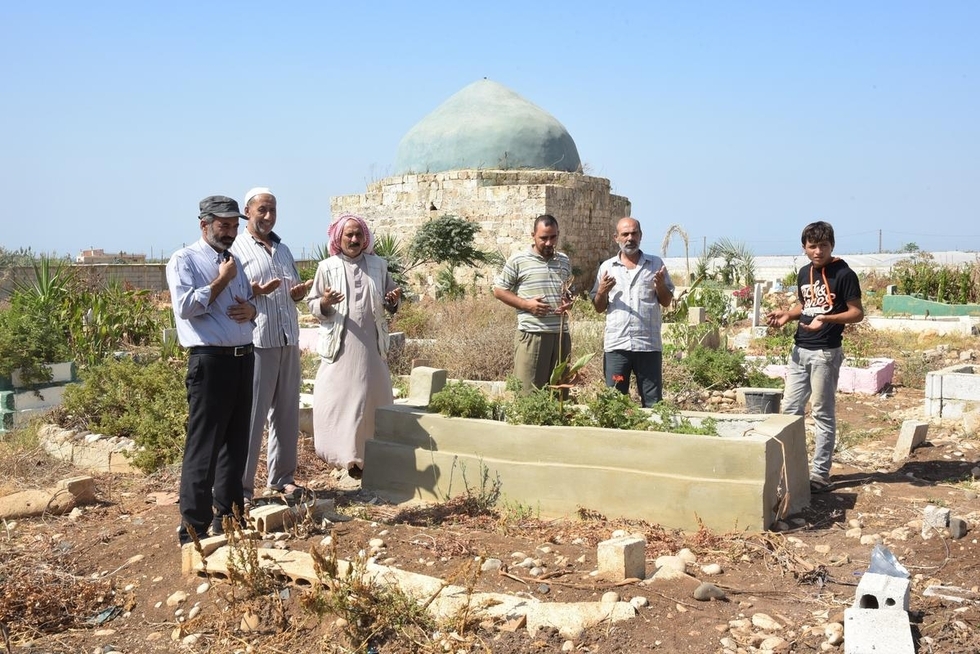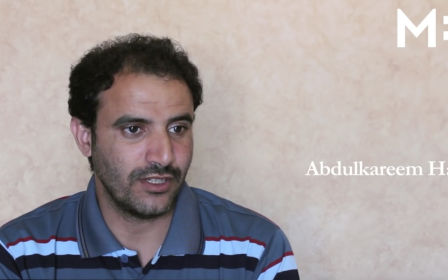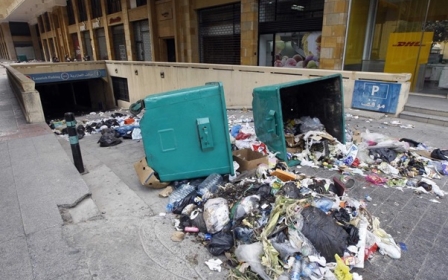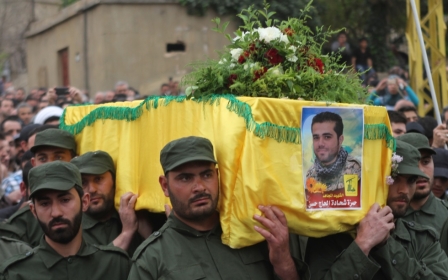Syrian refugees in Lebanon: Whose breaking point?

Since refugees began pouring into Lebanese territory from neighbouring Syria in 2011, much commotion has been made regarding Lebanon’s supposed position at the “breaking point” in terms of refugee capacity.
There’s no denying that the diminutive nation, home to an estimated four million people, has taken in a disproportionate number of refugees as compared to Fortress Europe and other less-than-helpful locales. Some two million refugees, both registered and unregistered, are reported to reside in Lebanon at present, thus constituting one third of the total population.
But just how likely is Lebanon to “break” under the weight of its guests?
For starters, consider the fact that the Lebanese government is already hardly inclined to attend to the needs of its own citizenry, resulting in borderline astronomical poverty levels in certain areas and notoriously insufficient services.
Obviously, an absentee state of this sort is not going to feel overly compelled to ease the burden of existence for poor refugees, many of whom have ended up crammed into rented houses - often with multiple families sharing a single room - and informal tented settlements (ITSs).
In the latter, shelters are cobbled together from building materials, billboard scraps, plastic tarps and anything else that can put an extra bit of distance between the human body and the elements. When I recently visited two tented settlements in Lebanon’s Bekaa Valley near the Syrian border, refugees expressed fear of an impending repeat of the last deadly winter, and recounted the pernicious effects of September’s dust storm on their skin and respiratory systems.
Another “breaking point” argument revolves around the idea that Lebanon’s perennial shortage of water and other resources means the influx of refugees is unsustainable from both an environmental and financial perspective. But as a Lebanese environmental consultant pointed out to me in Beirut the other day, government corruption also constitutes a fairly hefty strain on the economy - a factoid Lebanese politicians might do well to recall before scapegoating refugees for their own willful misgovernance.
Meanwhile, there’s magically plenty of water available for state security forces to shoot in the direction of protesters demonstrating against corruption and political sectarianism, as has been a regular occurrence during Lebanon’s ongoing rubbish crisis. And despite being allegedly filled to the hilt with refugees, the Bekaa Valley has somehow been deemed to have plenty of room for trash, as the government schemes to find a destination for the capital’s overflowing refuse.
Better to flee
Of course, the Bekaa Valley already has its own fair share of rubbish, as Syrian refugees who have inhabited area landfills can presumably attest to. Which brings us back to the matter of the “breaking point”: one may indeed exist in Lebanon, but refugees would seem to have a pretty solid claim to it, too.
At one of the tent settlements I visited in the town of Majdal Anjar, where I was kindly escorted by two representatives of Doctors Without Borders (MSF), an older Syrian man from Homs speculated that the Lebanese government was actively trying to break the refugees, as it were, so that they would flee elsewhere.
The man’s own two sons had recently embarked on the “trip of death”, i.e. the boat journey to Europe. They had been unable to tolerate any longer their demeaning treatment at the hands of the Lebanese authorities, he said, or the constantly fluctuating requirements for refugees in the country. He had no news of their progress or wellbeing.
Numerous refugees who spoke to me complained of a new rule, implemented this year, requiring them to pay an annual fee of $200 to retain their spot in Lebanon. In practice, some of them claimed, this sum was liable to increase to $300.
The UN refugee agency, UNHCR, provides a summary of the additional demands the Lebanese government has placed on refugees: “a housing commitment (certified copies of a lease agreement or real-estate deed); certified attestation from a mukhtar (village leader) that the landlord owns the property; and a notarised pledge not to work; and proof of their financial means or of the support they receive”.
If you’re wondering how one is supposed to reconcile a pledge not to work with a housing lease and annual payments to secure one’s refugee status, you’re not alone. The UNHCR continues: “Most refugees are not able to pay the US $200 fee, nor can they produce the documents required since most do not have formal lease agreements or ways of demonstrating that they have financial means to live in Lebanon”.
The result, naturally, is “a growing sense of insecurity and unease in refugee communities,” where people feel “increasingly vulnerable to abuse given their irregular status in the country”.
And the sense of insecurity, it turns out, is hardly unmerited. At various locations throughout Lebanon, vigilante-enforced curfews have at times been implemented for Syrians only, in a perverse criminalisation of refugeehood. On more than one occasion, refugee tents have been burned to the ground.
Shutting the door
Last October, the Lebanese government announced that it had ceased accepting Syrian refugees; Lebanon’s Daily Star newspaper quoted Social Affairs Minister Rashid Derbas as charitably specifying that “any Syrian national is welcome, but not as a refugee”.
And if it weren’t already painfully clear that the most “welcome” of the Syrian nationals are the ones with fat wallets, Lebanon unveiled a new border policy in January 2015, a drastic change from the previous open-door arrangement. According to the new rules, each and every Syrian must have either a visa or a Lebanese sponsor. A tourist visa requires a hotel reservation and $1,000 in on-the-spot proof of one’s superior material worth, which basically ensures that poor refugees fleeing war can’t sneak in under the pretence of, say, visiting the Phoenician ruins.
In Majdal Anjar, refugees as well as MSF staff reported that even refugees whose papers were perfectly in order were still deemed fit for harassment by Lebanese security. Furthermore, I was told, people’s names were disappearing from the official refugee registry, meaning that, for example, a female ITS resident I met who had no family members in Lebanon was now no longer receiving her monthly allocation of $13.50 from the UN to purchase food.
Among the various other hardships in the ITSs were that NGO water deliveries were inconsistent and had been curtailed to the point that a family of five was now said to receive the same amount of water as a family of 12. Toilets overflowed, posing health hazards, and diseases abounded.
One of the MSF workers remarked that even dying was a problematic matter, eliciting a chuckle from the refugees; one man had just shared the saga of searching for a burial plot for his father, who had perished on the side of the road during an excursion to buy potatoes. The burial plot search, the son said, had required a suspension of personal dignity as he made the rounds of local sheikhs, one of whom finally conceded to his request.
Nor is the beginning of the life cycle without its own complications. While there are several hospitals in the area where the UNHCR covers 75 percent of delivery costs for Syrian refugees, the remainder is often still beyond their financial capabilities, which can result in the confiscation of the mother’s refugee card until the bill is paid off. In some cases, the MSF worker noted, the newborn itself can be detained at the hospital while finances are sorted.
In the end, the government of Lebanon can moan all it wants about its disproportionate refugee burden. But what has really been underscored by the current Lebanese example is that, when you’re already in the business of not taking proper care of your own people, it isn’t all that difficult to not take care of two million more.
- Belen Fernandez is the author of The Imperial Messenger: Thomas Friedman at Work, published by Verso. She is a contributing editor at Jacobin magazine.
The views expressed in this article belong to the author and do not necessarily reflect the editorial policy of Middle East Eye.
Photo: Hassan, a Syrian refugee who was severely injured in fighting in his war-torn home country, died after being brought to the Lebanese village of Akar. Hasan’s cousin, however, was forced to keep the body in a tent for three days before he was finally able to find a place - and the money - to bury it. (AA)
New MEE newsletter: Jerusalem Dispatch
Sign up to get the latest insights and analysis on Israel-Palestine, alongside Turkey Unpacked and other MEE newsletters
Middle East Eye delivers independent and unrivalled coverage and analysis of the Middle East, North Africa and beyond. To learn more about republishing this content and the associated fees, please fill out this form. More about MEE can be found here.





